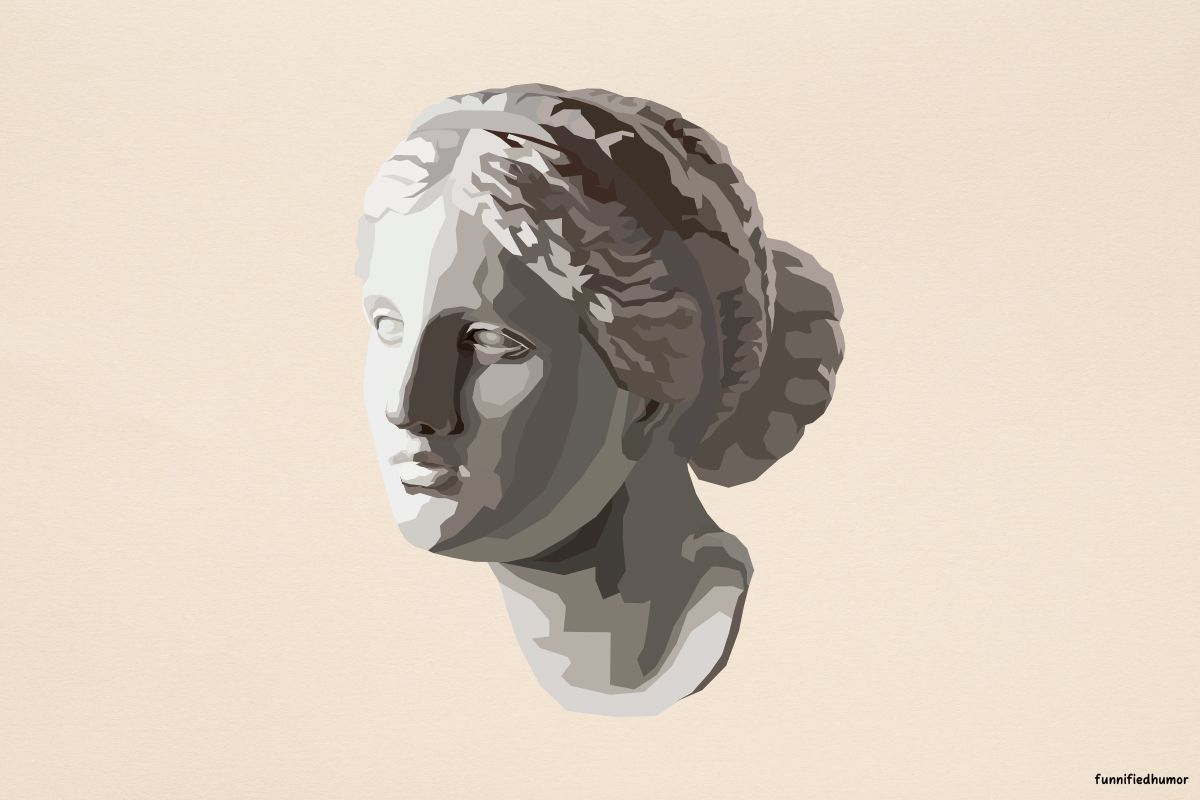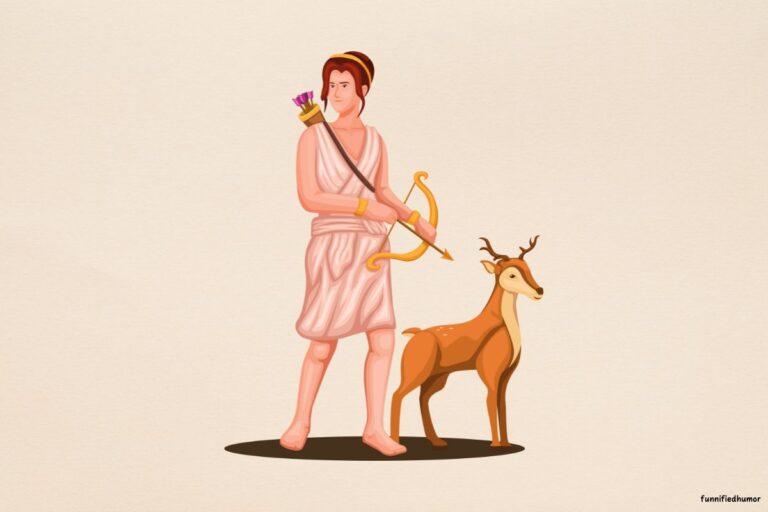3 Short Stories About Aphrodite

A whisper of beauty, a symbol of love, and an essence of desire, Aphrodite has been a constant muse for poets, artists, and storytellers since time immemorial.
From the tranquil shores of Cyprus to the heart of modern pop culture, stories about Aphrodite have shaped our understanding of love, beauty, and passion. Her tales are not just stories, but reflections of human desires and dreams, personified through a goddess who transcends time and cultures.
As we dive deep into the many narratives woven around this iconic deity, we are reminded of the power of myths, and the ageless allure they hold over us.
So, let’s embark on a journey through time, and re-discover Aphrodite, not just as the goddess of love, but as a reflection of the many facets of human emotion and experience.
Stories about Aphrodite
1. Aphrodite and the Golden Apple
Once upon a time, the gods and goddesses of Mount Olympus gathered to celebrate the wedding of Peleus and Thetis. Everyone was invited—well, almost everyone. Eris, the goddess of discord, was intentionally left off the guest list because, as you can probably guess from her title, she had a reputation for causing trouble.
Feeling snubbed and looking to stir the pot, Eris decided to crash the party. She brought with her a shiny golden apple inscribed with the word “καλλίστῃ” (kallistēi), which translates to “to the fairest.” She tossed the apple amongst the goddesses and let nature take its course.
Three of the most prominent goddesses of Olympus—Hera, Athena, and Aphrodite—each believed that they were the fairest and that the apple was meant for them. As you can imagine, a quarrel ensued. Unable to decide amongst themselves who was the most deserving, they turned to Zeus, the king of the gods, to settle the dispute.
Zeus, however, didn’t want to get involved in this potentially explosive situation. So, he cleverly delegated the task to a mortal man named Paris, who was a prince of Troy.
The three goddesses then approached Paris, each trying to sway his decision in her favor by offering him tempting bribes. Hera promised him power and rulership over all of Asia. Athena offered wisdom and unparalleled skills in battle. Aphrodite, on the other hand, promised him the love of the most beautiful mortal woman: Helen of Sparta.
Paris, swayed by his desires, chose Aphrodite as the fairest of them all, awarding her the golden apple. As promised, he won the love of Helen. However, there was a significant problem: Helen was already married to King Menelaus of Sparta. Paris’s actions led to Helen’s elopement with him to Troy.
This act of taking Helen sparked the animosity between Troy and the Greek city-states, eventually leading to the decade-long Trojan War, one of the most famous wars in mythology.

2. Aphrodite and the Creation of the Rose
In the tranquil realm of Mount Olympus, there was one deity who held the title of the most beautiful and most enchanting: Aphrodite, the goddess of love and beauty. Each day, she would wander through the heavens, spreading love and harmony among the gods and mortals. Yet, despite her ethereal beauty, the goddess had no flower that truly represented her grace and essence.
One morning, as she bathed in a secluded crystal lagoon, a gentle wind carried a melodious tune, drawing Aphrodite’s attention. This tune led her to a handsome young satyr named Phaeton, who was playing his flute near the water’s edge. Enchanted by his music, Aphrodite approached the satyr, and the two quickly became friends. They shared tales of their adventures, laughed, and danced. But as the sun began to set, a cruel twist of fate occurred.
Phaeton, while frolicking near the water’s edge, slipped on a mossy stone and was fatally wounded by a sharp rock. Aphrodite rushed to his side, tears streaming down her face. She cradled Phaeton’s head, but he had already passed to the Underworld.
Devastated by the loss, Aphrodite’s tears mixed with the blood of the young satyr. Where the two mingled on the ground, a miraculous transformation occurred. A vibrant and fragrant flower sprouted: its petals a rich crimson from Phaeton’s blood and its scent, delicate and sweet from Aphrodite’s tears.
The goddess, despite her grief, was amazed by the birth of this new flower. She named it the Rose, declaring it to be a symbol of both love and sorrow. The Rose would represent the dual nature of existence: the joy and pain, the love and loss.
Aphrodite then blessed the rose with a gift. Any mortal or deity that would stop to smell the rose would feel a momentary relief from their sorrows, a brief moment where love would fill their hearts, reminding them of the beauty of life.
And so, the Rose, with its thorns representing the pain of loss and its petals representing the beauty of love, became the eternal emblem of Aphrodite. The goddess ensured that the world was abundant with these blooms, so that mortals and gods alike would always remember the fleeting nature of life and the eternal nature of love.
Note: The above tale is a fictional tale.

3. Aphrodite and the Loom of Envy
Once upon a time, in the shimmering city of Olympus, the gods and goddesses enjoyed eons of luxury and opulence. Each had their unique talents and powers, and the city itself was a testament to their grandeur. However, envy has a peculiar way of finding its way even into the hearts of the divine.
Athena, the goddess of wisdom, was proud of many things, but she particularly cherished her skill in weaving. She crafted the very fabric of the skies, and mortals would often speak of the celestial tapestries which hung over their heads at night.
One day, Aphrodite, the goddess of love and beauty, happened upon Athena’s latest creation: a breathtakingly beautiful tapestry showcasing the story of the gods. It was so detailed and intricate that it seemed to be alive.
Curious and somewhat playful, Aphrodite decided she wanted to try her hand at weaving. She thought, “Beauty is my domain. How difficult could it be to weave something delightful?” She didn’t mean it as a challenge, but more out of genuine curiosity and a bit of playful envy.
However, weaving wasn’t as simple as Aphrodite had assumed. The threads kept slipping through her fingers, and the patterns turned into tangled messes. Yet, with each failed attempt, she felt a burning determination to succeed.
As the days passed, the other gods and goddesses began to notice her persistent attempts. Hephaestus, her husband and god of the forge, crafted her a loom made of gold and precious gems, thinking it might help her. But the outcome was the same.
Athena, hearing of Aphrodite’s attempts, came to her. Instead of mocking or showing pride, Athena offered guidance. Aphrodite, humbled by her struggles, accepted.
Together, they wove a tapestry unlike any other. It was not just a blend of celestial events, but a union of love and wisdom. The tapestry showcased the dance of mortal souls, their passions, desires, and dreams all interwoven with threads of choices, lessons, and wisdom.
Once it was finished, Aphrodite and Athena hung the tapestry in a place where all could see. It became a testament to their collaboration and a symbol of the beauty that emerges when love and wisdom combine.
The gods and mortals alike would look upon it, reminded of the power of perseverance, the importance of seeking guidance, and the profound beauty of collaboration. And in this story, Aphrodite learned that while love was her domain, it was only through wisdom and collaboration that love could be fully realized.
Note: The above tale is a fictional tale.






